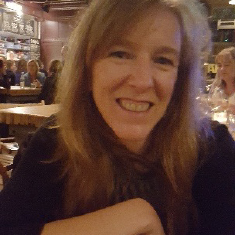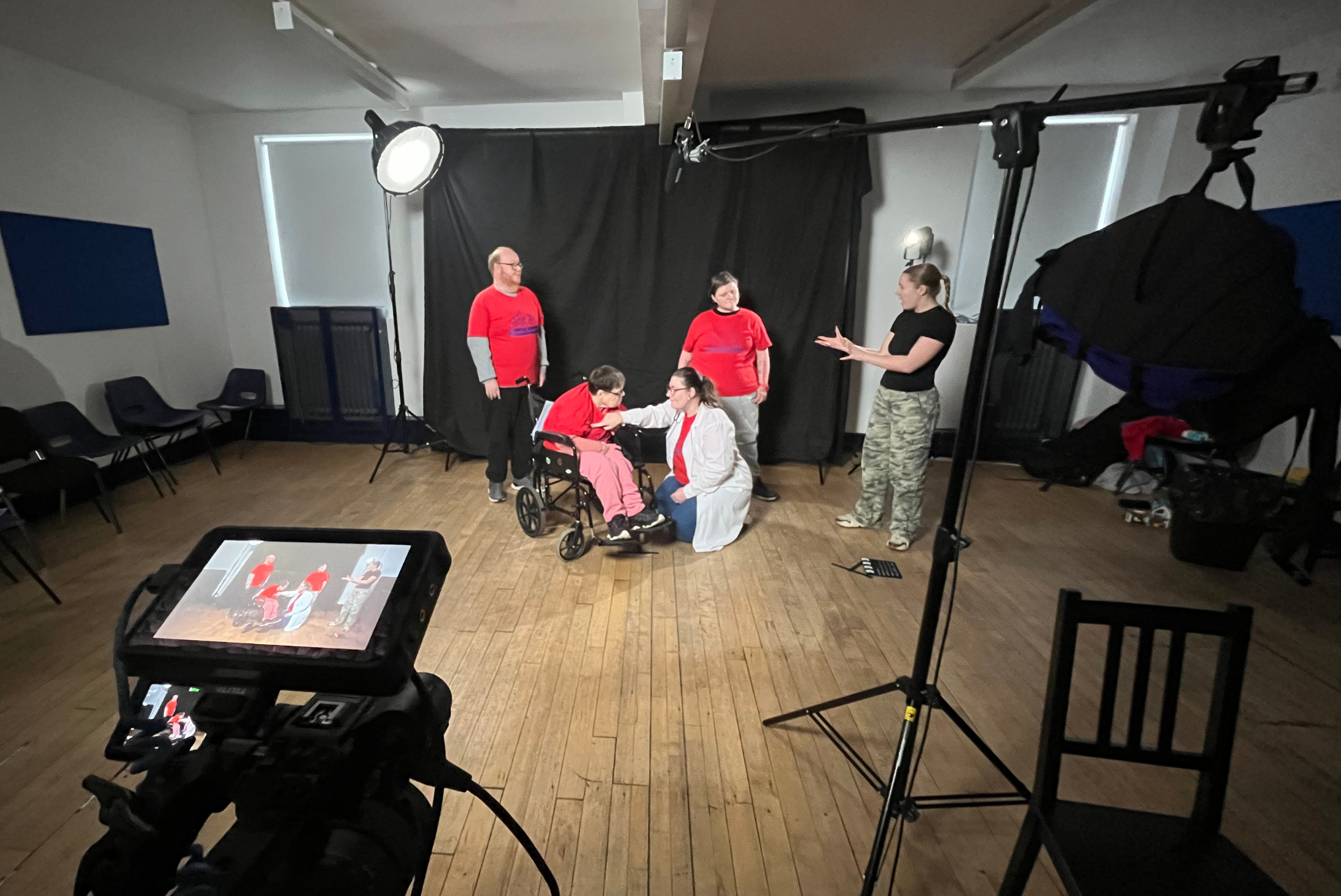How we organise ourselves
DIY Theatre is a Community Interest Company (CIC) with a Voluntary Board.
As a member- led organisation it is very important to us that our board is mainly made up of people with lived experience of learning disability.
A board is a group of people who meet about every 6 weeks to discuss company developments, projects and finances. We also hold an Annual General Meeting once a year when we elect our board members, this is known as an AGM.
We aim to make our board meetings as accessible as possible. For example:
- Activities like visual arts are used to help everyone understand complicated ideas.
- Small group discussions give everyone a chance to express their thoughts and share their views.
- Agendas and minutes are made accessible using Easy English and Photosymbols.
- Sub-groups, like our policies sub-group have been set up so we can look at things in more detail.
The DIY Theatre Board
- Makes decisions
- Solves problems
- Reports concerns
- Gives feedback from projects
- Checks money
Our current Board Members are:
- Charlotte Little – Co-Chair
- Martin Riley – Co-Chair
- John Leyland – Company Secretary
- John Doyle – Treasurer
- Cathy Rothwell
- Amy Carter
- Angela Chadwick
- Di Critchley
- Jenny Harris
- Scott Lawrie

We often split into smaller groups at Board Meetings to look at things in detail.
DIY’s Advisory Group
Our Board is supported by a group of four unpaid advisors with lots of skills and knowledge.
The Advisory Group helps by giving advice on:
- Getting more people involved
- Connecting with other groups
- Improving access
- Finding funding
The group is there to advise and does not vote in Board decisions. Below is more information about each person who make up The Advisory Group.
Professor Mark Dooris
Emeritus Professor in Health & Sustainability, University of Central Lancashire
Mark lives in Manchester and until 2023 worked at the University of Central Lancashire where he was Professor in Health & Sustainability and Co-Director of the Healthy & Sustainable Settings Unit. He is now retired and – alongside continuing doing some bits and pieces of work – enjoys mountain walking, cycling, cooking, photography, reading and hanging out with friends.
With a background in health promotion, public health, community development, arts & health and environmental policy, Mark has worked within the health service, voluntary sector, local government and higher education – and is passionate about changing society for the better and tacking social, economic and ecological injustice. He is particularly interested in how different art forms can be used to raise awareness, challenge assumptions and promote wellbeing.
Mark is Expert Adviser to the International Health Promoting Campuses Network, and before retiring was Chair of the UK Healthy Universities Network, a member of Universities UK’s Mental Health in Higher Education Advisory Group, and an expert witness to the Climate Commission for UK Further and Higher Education. Over the past three decades, he has been on numerous governance and oversight groups at local, national and international levels – including: Preston Community Arts Project Management Committee; Lancashire Development Education Management Committee; North West Improving Mental Health & Wellbeing Taskforce; Food Research Collaboration Advisory Group; Sustainable Food Cities Expert Group; UK Healthy Cities Network Steering Group; and the International Union of Health Promotion & Education (IUHPE) Global Working Group on Healthy Settings.
Lindsey Brook
 Engagement and Development Officer, NHS Salford Clinical Commissioning Group
Engagement and Development Officer, NHS Salford Clinical Commissioning Group
Lindsay is a font of all knowledge in Salford regarding Salford City Council and Salford CCG’s engagement with adults with learning disabilities. She established and facilitates the Salford Listening to People forum which meets once a month and is involved in shaping plans and actions for Salford, Greater Manchester and nationally in relation to people with learning disabilities.
Joanna Beswick
 Headteacher, Manchester Hospital School
Headteacher, Manchester Hospital School
Manchester Hospital School (MHS) provides education for children and young people who cannot attend their usual school because of their medical or mental health needs.
MHS is a unique school with a national and international reputation for excellence in its field. As a Hospital School, it is classed as a community special school because all the young people it works with have ill health; physical, mental or both. The schools operate across a number of sites, teaching children of all ages and abilities. It also works with schools across Manchester and beyond, offering advice and practical assistance on how they can best support any students who can no longer attend school for health reasons.
Our Theory of Change
We have a Theory of Change which guides all of our planning and development.
It has been developed through extensive consultation and visioning sessions involving DIY members, staff, Board & Advisory Group. We have created it to help us evaluate how individual creative projects contribute to longer term impacts.
We are using it as a framework for planning & evaluation. It was adopted in February 2022 & covers a three year time-span from April 2022 to April 2025. It is a working document and will be reviewed at regular intervals.
Click to view Our Theory of Change


